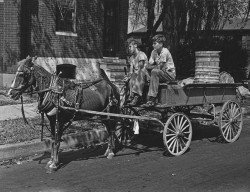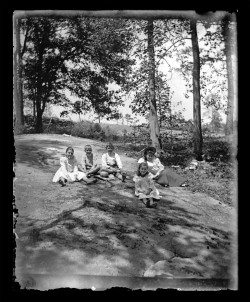In The Road Home, the character of Tommy is fourteen in the 1891 plotline. His character was inspired in part by my great uncle, Frank Gale Arthur (son of Jeanie and Frank), and in part by my great-grandfather James. In the real family letters that were written after Jeanie and Frank divorced, Frank, Jr. was never referred to as Frank. I don’t know if that’s because Jeanie didn’t want to have the name Frank on her lips each day or if they had always called him Gale to cut down on name confusion around the house.

It turns out Gale’s personality apple did not fall far from his father’s tree. In reading 500+ pages of letters the mentions of Gale far outweigh that of any other sibling. Because I have few letters from Frank, it’s hard to tell if he was as difficult a person as he comes across as in the divorce papers, but if Gale’s behavior is any indication I would say it’s likely.
My great-grandfather, James O. Arthur, became a minister like the character of Tommy. But I infused great-Uncle Gale’s wanderlust and unreliability into Tommy as well. At the time this set of letters was written the roles of the children are fairly clear—James and Margery were reliable, intelligent, independent and content with living away from their mother and siblings. They were about twenty and eighteen-years-old when the letters began. Gale was fifteen or sixteen and the star of nearly every letter Jeanie writes to James. Here’s a simple breakdown of the family:
- Jeanie: single mother busting her ass to keep their house from the tax collector and salivating foes who wanted the property.
- Frank: sent occasional letters to kids… claimed to want to be in their lives, but never actually appeared… always broke
- Alice: died at age of 2 on the prairie
- James: the rock
- Margery: absent but independent
- Gale: an emotional and economical worry if not a drain—hoping for an invite from his father to go live with him—the invite never comes.
- Dorothy: difficult and nearly as troublesome as Gale
- Jeanie: Not mentioned much, but appears to be an easy child
- Jessie: youngest child—always heading into or out of an illness

And so, as Jeanie worked multiple jobs (more on that soon!) and juggled her children so that some were boarded out to families who needed extra hands and the oldest contributed to the family in every way possible. She was met with frustration at Gale’s tendency toward wanting the life of a “gentleman” but not really up for the work that it would take to actually be one.
It’s with this framework that I will offer some of Jeanie’s attempts to parent her children alone. And by parenting, it seems as though that meant:
- keep everyone healthy and alive
- require each child to contribute to the family even if living somewhere else
- press for education that would ensure a better/easier life and again—eventually to help to keep the family house in the Arthur name.
1907 was a very different time in America when it came to raising children. Gale who was 16 at that time held at least twenty-two jobs between August 1907 and November 1909. While still attending (begrudgingly) school, some of these were formal jobs like:
- Newspaper boy
- Wagon/Team driver for Mr. Fitzgerald
- Mechanical drawer
- Folding Hides at packing plant
- Bellboy at Savery Hotel
- Elevator man at Savery Hotel
- Book and newspaper salesman on a train route to Denver and back
- Bellboy at Chamberlain Hotel
He also contributed money by holding these informal jobs as well:
- Digging potatoes
- Clearing gardens
- Hunting rabbits
- Trapping groundhogs
- Selling his bike for cash
- Work at County Fair
- Chores for Aunt Alice
- Chores at the Carpenters
- Firing furnaces at various homes
All of these informal jobs that Gale performed were referenced along with him being paid to do them. Jeanie often expressed frustration at Gale not being willing to do these jobs and then also help more at home. To this 21st century mom the exchange of room and board–the way Jeanie discusses it–feels more like business dealings with strangers than the raising of a child. This is an astonishing list of jobs to have held between the time Gale was sixteen and eighteen, yet it was never enough.
Jeanie writing to her son, James, “The children are fat and healthy looking. They eat hazel nuts every day and I guess they don’t suffer though Gale said the other day I was getting stingier every day.”
This idea that Jeanie is stingy is an important theme in the letters especially in the ones that were written in 1914 near the time of Jeanie’s death.
In another letter Jeanie says, “Gale does not do anything round home, only milk the cow, get coal and kindling. He makes a first class loafer.” Her exasperation is clear.
“Gale started doing the chores at Carpenters when Father (her father) quit. Last night the dogs held him up so he wa afraid to go to the house to get the milk pail so he came home without milking and won’t go back. He spends all his time trapping gophers for the bounty ($1.10 for eleven). He sent to Chicago for a 22 revolver so I expect somebody will be getting killed. I have it locked up at present…” In the next letter… “Gale has not got a job yet, has given up his paper route too. Grandpa has promised him a dollar if he will clean out his potato patch.” And then a truly illuminating passage:
“I think I told you (James) last week that Gale was driving one of Fitzgerald’s teams for him on grade work for the city. He gets a dollar a day. Margie and Dorothy have mowed the yard a couple of times so it does not look bad. I have not had time to touch it. Gale won’t do anything at night after he gets home, says he does his days work and pays his board, that’s all he is going to do, so I have to keep my garden as clean as I can myself…”
And a couple of weeks later to James… “Gale has been out of work for a week. Fitzgerald had one of his teams laid off… Gale has spent all of his money beside what he paid me for board for a bicycle so he has not saved a cent. If he does not get any work soon he won’t be able to pay his board and I have been counting on that money to help on the mortgage. I want to pay off Shope this fall if possible… Will you have enough for interest and taxes?”
Yes, times have changed all right. So let’s talk… What do these little snippets tell you about time, place and people?
Coming soon… a deeper look at how details like this informed the characters and events in The Road Home.
